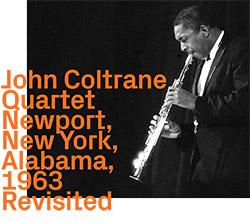
Two quartets performing two live concerts from 1963 led by John Coltrane on tenor & soprano saxophones, the first at the Newport Jazz Festival with McCoy Tyner on piano, Jimmy Garrison on double bass and Roy Haynes on drums, the second at Birdland with Elvin Jones on the drums, plus 2 studio recordings with that quartet at Van Gelder Studio in the same year.
In Stock
Quantity in Basket: None
Log In to use our Wish List
Shipping Weight: 3.00 units
EU & UK Customers:
Discogs.com can handle your VAT payments
So please order through Discogs
Sample The Album:
John Coltrane-tenor saxophone, soprano saxophones
McCoy Tyner-piano
Jimmy Garrison-double bass
Roy Haynes-drums
Elvin Jones-drums
Click an artist name above to see in-stock items for that artist.
UPC: 752156111429
Label: ezz-thetics by Hat Hut Records Ltd
Catalog ID: ezz-thetics 1114
Squidco Product Code: 30176
Format: CD
Condition: Sale (New)
Released: 2021
Country: Switzerland
Packaging: Cardboard Gatefold
Tracks 1-3 recorded at the Newport Festival July 7th, 1963. Tracks 4 to 6 recorded at Birdland, October 8, 1963. Tracks 7 and 8 recorded at Van Gelder Studio, November 18, 1963. Remastered by Michael Brändli, Hardstudios AG; Cover photo by Philippe Gras; Liner notes by Derek Taylor.
"John Coltrane played the long game. Longevity in life wasn't his lot; his fortieth year being his final bow. That circumscribed career, particularly in its final decade, evinced a trajectory of creative ascendancy that was as indelible to improvised music as it was omnipresent in impact. Charlie Parker arguably wears the posthumous mantle of most influential saxophonist, but Coltrane suggests a close contender in terms of ineluctable clout on those who ply the instrument.
Practice and the pursuit of technical prowess present a through line from Coltrane's Philadelphia-based beginnings to his last months in the summer of 1967. Lifelong friend and peer, Jimmy Heath, abstracted the obsession only half facetiously as a 25-hour-a-day regimen. Length and complexity of variation and extrapolation became integral parts of Coltrane's sound; he was constantly learning, constantly putting in the work.
Years later, on a final European tour as a member of Miles Davis' Quintet the striking contrast in emphasis with his bandmates lead to a famous anecdotal exchange between bandleader and sideman where the former advised the latter that the "solution" to ending his solos was "taking the horn out of his mouth." Miles was right, of course, but his reductive prescription also missed the point of Coltrane's musical loquaciousness. At the helm of his own ensembles, post-Davis, Coltrane's already legendary dedication to his instrument only intensified.
Everything came together from an ensemble perspective with the formation of the quartet comprising McCoy Tyner, Jimmy Garrison and Elvin Jones. Piecemeal in construction rather than immediate, the process progressed gradually as each member became available for conscription. Once again, Coltrane played the long game, biding his time and auditioning alternative options like pianist Steve Kuhn, bassists Reggie Workman and Art Davis, and drummers Pete La Roca and Billy Higgins for varyingly transitory tenures until the preferred puzzle pieces finally locked into place.
By the arrival of the quartet's Newport Jazz Festival engagement in the summer of 1963, they had been a working unit for the better part of a year. Jones, in the throes of escaping a tenacious heroin habit, was unavoidably absent the gig. So Coltrane tapped one of the most versatile drummers of time, Roy Haynes, as pro tempore stopgap. A consummate professional with a voluminous swing-to-free jazz versatility, Haynes' enthusiastic presence made for a subtle deviation in group dynamics with snare eclipsing cymbals as propellant and a pliable porousness replacing Jones propensity for polyrhythmic density.
Coltrane first recorded "I Want to Talk About You" at a studio session for the Prestige label that would result in his 1958 album Soultrane. By 1963, the Billy Eckstine standard was a regular part of his performance repertoire, appearing on both the Newport and Birdland set lists, but in very different guises than the earlier iteration. In both subsequent versions, he strains and strives against the strictures imposed by his instrument and the song structure. The solo cadenza, which became at once signature and signifier of the piece, is rife with the kind of rapid chordal overlays initially codified several years earlier as "sheets of sound," but here jettisoned from any underlying structural supports other than those working extemporaneously in his mind at the time.
"Impressions" also stands out as a telling precursor of expansive improvisational itineraries soon to come. Not atypical in terms of its extended length, recording distortion marred Garrison's bass solo during the piece and led to an unfortunate excision. It's still a performance rife with immersive interest including the eleven-minute tenor and drums duet that occupies the second half where Haynes creates a rigorously shifting rhythmic framework without ceding even a modicum of poise and drive. The other compositions covered on both dates are memorable for their own merits, but it's here where the crystal ball convergence of Coltrane's late game music feels most foretold.
Material from the quartet's concert at Birdland in October, presents a different, more emblematic aural picture than the Newport set. Jones is restored on drums and the band holds court in the home turf surroundings of the Manhattan jazz club. "Afro Blue" and "The Promise" replace "My Favorite Things" as modal staples for the evening. Coltrane is lushly effusive on each, shaping solos imbued with confidence and colloquial intensity. Jones goads him into an oceanic, cymbals-splashed correlative to the Newport colloquy with Haynes that also starkly displays the turbulent, steadfast dissemblance between the drummers.
Recorded the following month, "Alabama" is one of three studio pieces added to original Impulse album release to augment the concert performance. Coltrane composed the deeply elegiac dirge as an aural homage to the four schoolgirls murdered in a Birmingham church bombing in September. Its inclusion here is intended as an expression of solidarity with the Black Lives Matter movement and the surrounding campaign for social justice that's risen out of the current era of amplified mortality, divisive strife, and individualistic tooth-and-nail acrimony. Coltrane's quartet was, particularly on the concert stage, the opposite of these corrosive invectives. Its members comprised a fraternal formation, fused by the faculties and forward-thinking of its fearless leader, but also complete individuals encouraged to realize their fullest selves in pursuit of communal expression."-Derek Taylor, November 18th, 2020
Artist Biographies
• Show Bio for John Coltrane "John Coltrane, in full John William Coltrane, byname Trane, (born September 23, 1926, Hamlet, North Carolina, U.S.-died July 17, 1967, Huntington, New York), American jazz saxophonist, bandleader, and composer, an iconic figure of 20th-century jazz.John Coltrane, 1966. Coltrane's first musical influence was his father, a tailor and part-time musician. John studied clarinet and alto saxophone as a youth and then moved to Philadelphia in 1943 and continued his studies at the Ornstein School of Music and the Granoff Studios. He was drafted into the navy in 1945 and played alto sax with a navy band until 1946; he switched to tenor saxophone in 1947. During the late 1940s and early '50s, he played in nightclubs and on recordings with such musicians as Eddie ("Cleanhead") Vinson, Dizzy Gillespie, Earl Bostic, and Johnny Hodges. Coltrane's first recorded solo can be heard on Gillespie's "We Love to Boogie" (1951). Coltrane came to prominence when he joined Miles Davis's quintet in 1955. His abuse of drugs and alcohol during this period led to unreliability, and Davis fired him in early 1957. He embarked on a six-month stint with Thelonious Monk and began to make recordings under his own name; each undertaking demonstrated a newfound level of technical discipline, as well as increased harmonic and rhythmic sophistication. During this period Coltrane developed what came to be known as his "sheets of sound" approach to improvisation, as described by poet LeRoi Jones (later Amiri Baraka): "The notes that Trane was playing in the solo became more than just one note following another. The notes came so fast, and with so many overtones and undertones, that they had the effect of a piano player striking chords rapidly but somehow articulating separately each note in the chord, and its vibrating subtones." Or, as Coltrane himself said, "I start in the middle of a sentence and move both directions at once." The cascade of notes during his powerful solos showed his infatuation with chord progressions, culminating in the virtuoso performance of "Giant Steps" (1959). Coltrane's tone on the tenor sax was huge and dark, with clear definition and full body, even in the highest and lowest registers. His vigorous, intense style was original, but traces of his idols Johnny Hodges and Lester Young can be discerned in his legato phrasing and portamento (or, in jazz vernacular, "smearing," in which the instrument glides from note to note with no discernible breaks). From Monk he learned the technique of multiphonics, by which a reed player can produce multiple tones simultaneously by using a relaxed embouchure (i.e., position of the lips, tongue, and teeth), varied pressure, and special fingerings. In the late 1950s, Coltrane used multiphonics for simple harmony effects (as on his 1959 recording of "Harmonique"); in the 1960s, he employed the technique more frequently, in passionate, screeching musical passages. Coltrane returned to Davis's group in 1958, contributing to the "modal phase" albums Milestones (1958) and Kind of Blue (1959), both considered essential examples of 1950s modern jazz. (Davis at this point was experimenting with modes-i.e., scale patterns other than major and minor.) His work on these recordings was always proficient and often brilliant, though relatively subdued and cautious. After ending his association with Davis in 1960, Coltrane formed his own acclaimed quartet, featuring pianist McCoy Tyner, bassist Jimmy Garrison, and drummer Elvin Jones. At this time Coltrane began playing soprano saxophone in addition to tenor. Throughout the early 1960s Coltrane focused on mode-based improvisation in which solos were played atop one- or two-note accompanying figures that were repeated for extended periods of time (typified in his recordings of Richard Rodgers and Oscar Hammerstein's "My Favorite Things"). At the same time, his study of the musics of India and Africa affected his approach to the soprano sax. These influences, combined with a unique interplay with the drums and the steady vamping of the piano and bass, made the Coltrane quartet one of the most noteworthy jazz groups of the 1960s. Coltrane's wife, Alice (also a jazz musician and composer), played the piano in his band during the last years of his life. During the short period between 1965 and his death in 1967, Coltrane's work expanded into a free, collective (simultaneous) improvisation based on prearranged scales. It was the most radical period of his career, and his avant-garde experiments divided critics and audiences. Coltrane's best-known work spanned a period of only 12 years (1955-67), but, because he recorded prolifically, his musical development is well-documented. His somewhat tentative, relatively melodic early style can be heard on the Davis-led albums recorded for the Prestige and Columbia labels during 1955 and '56. Thelonious Monk and John Coltrane (1957) reveals Coltrane's growth in terms of technique and harmonic sense, an evolution further chronicled on Davis's albums Milestones and Kind of Blue. Most of Coltrane's early solo albums are of a high quality, particularly Blue Train (1957), perhaps the best recorded example of his early hard bop style (see bebop). Recordings from the end of the decade, such as Giant Steps (1959) and My Favorite Things (1960), offer dramatic evidence of his developing virtuosity. Nearly all of the many albums Coltrane recorded during the early 1960s rank as classics; A Love Supreme (1964), a deeply personal album reflecting his religious commitment, is regarded as especially fine work. His final forays into avant-garde and free jazz are represented by Ascension and Meditations (both 1965), as well as several albums released posthumously." ^ Hide Bio for John Coltrane • Show Bio for McCoy Tyner "McCoy Tyner, in full Alfred McCoy Tyner, also called Sulaimon Saud, (born December 11, 1938, Philadelphia, Pennsylvania, U.S.), American jazz pianist, bandleader, and composer, noted for his technical virtuosity and dazzling improvisations.McCoy Tyner. Tyner began performing with local jazz ensembles while in his mid-teens. He met saxophonist John Coltrane in 1955 and, after a brief stint (1959) with a group led by Art Farmer and Benny Golson, helped Coltrane form his renowned quartet in 1960. Tyner developed his signature strong pentatonic chord-playing style and lightning-fast runs during his years with Coltrane. In addition, the group began incorporating elements of African and other musical genres into their playing style. Striking out on his own in 1965, Tyner led a variety of ensembles (for many years including bassist Ron Carter) and also worked solo and extensively as a sideman. From the mid-1980s he performed largely in a trio, but he also formed a big band that made occasional appearances. Tyner made dozens of recordings in his own name and contributed to dozens more. Notable among his own albums are The Real McCoy (1967), Sahara (1972), 4 × 4 (1980), and Infinity (1995) and, with his big band, Uptown/Downtown (1988). Tyner converted to Islam in the mid-1950s and adopted the name Sulaimon Saud." ^ Hide Bio for McCoy Tyner • Show Bio for Jimmy Garrison "James Emory Garrison (March 3, 1934 Š April 7, 1976) was an American jazz double bassist. He is best remembered for his association with John Coltrane from 1961 to 1967. Garrison was raised in both Miami, Florida and Philadelphia where he learned to play bass. Garrison came of age in the midst of a thriving Philadelphia jazz scene that included fellow bassists Reggie Workman and Henry Grimes, pianist McCoy Tyner and trumpeter Lee Morgan. Between 1957 and 1962, Garrison played and recorded with trumpeter Kenny Dorham; clarinetist Tony Scott; drummer Philly Joe Jones; and saxophonists Bill Barron, Lee Konitz, and Jackie McLean, as well as Curtis Fuller, Benny Golson, Lennie Tristano, and Pharoah Sanders, among others. In 1959 he first appeared on record with Ornette Coleman on "Art of the Improvisers" (Atlantic, 1959). He continued to work with many leaders, including Walter Bishop, Jr., Coleman, Dorham, and Cal Massey for the next two years. He formally joined Coltrane's quartet in 1962, replacing Workman. The long trio blues "Chasin' the Trane" is probably his first recorded performance with Coltrane and Elvin Jones. Garrison performed on many classic Coltrane recordings, including A Love Supreme. In concert with Coltrane, Garrison would often play unaccompanied improvised solos, sometimes as the prelude to a song before the other musicians joined in. After John Coltrane's death, Garrison worked and recorded with Alice Coltrane, Hampton Hawes, Archie Shepp, Clifford Thornton and groups led by Elvin Jones. Garrison also had a long association with Ornette Coleman, first recording with him on Ornette on Tenor and appeared on the outtake compilation Art of the Improvisers. He and drummer Elvin Jones have been credited with eliciting more forceful playing than usual from Coleman on the albums New York Is Now! and Love Call. In 1971 and 1972, Garrison taught as a Visiting Artist at Wesleyan University and Bennington College. Jimmy Garrison had four daughters and a son. Garrison and his first wife Robbie had daughters Lori, Joy and Robin. Then later with his second wife, Italy-based dancer and choreographer Roberta Escamilla Garrison, came Maia Claire and Matthew. Matthew, Joy and Maia Claire are accomplished artists in their own right. Matthew Garrison is a bass guitar player and the founder/owner of ShapeShifter Lab in Brooklyn, NY. He has performed and recorded with Joe Zawinul, Chaka Khan, The Saturday Night Live Band, John McLaughlin, Joni Mitchell, Herbie Hancock, Steve Coleman, Whitney Houston, Pino Daniele, John Scofield, Paul Simon, Tito Puente and many others. Joy Garrison sang alongside Barney Kessel, Cameron Brown, Tony Scott and many others. Maia Claire (Garrison-Trinn), former soloist with the dance troupe Urban Bush Women, currently works a Dance & Health Educator in Altamonte Springs, Florida. Jimmy Garrison died of lung cancer on April 7, 1976. His family legacy includes five grandchildren, Keith Owens, Glenda Rose Aiello, Benjamin Garrison, Lucas Garrison and Salif Alessandro Trinn. On June 25, 2019, The New York Times Magazine listed Jimmy Garrison among hundreds of artists whose material was reportedly destroyed in the 2008 Universal fire." ^ Hide Bio for Jimmy Garrison • Show Bio for Roy Haynes "Roy Owen Haynes (born March 13, 1925) is an American jazz drummer. He is among the most recorded drummers in jazz. In a career lasting over 75 years he has played swing, bebop, jazz fusion, avant-garde jazz and is considered the father of modern jazz drumming. "Snap Crackle" was a nickname given to him in the 1950s. He has led bands such as the Hip Ensemble. His albums Fountain of Youth and Whereas were nominated for a Grammy Award. He was inducted into the Modern Drummer Hall of Fame in 1999. His son Graham Haynes is a cornetist; his son Craig Holiday Haynes and grandson Marcus Gilmore are both drummers. " ^ Hide Bio for Roy Haynes • Show Bio for Elvin Jones "Elvin Ray Jones (September 9, 1927 - May 18, 2004) was an American jazz drummer of the post-bop era. He showed an interest in drums at a young age, watching the circus bands march by his family's home in Pontiac, Michigan. He served in the United States Army from 1946 to 1949 and subsequently played in a Detroit house band led by Billy Mitchell. He moved to New York City in 1955 and worked as a sideman for Charles Mingus, Teddy Charles, Bud Powell and Miles Davis. From 1960 to 1966 he was a member of the John Coltrane quartet (along with Jimmy Garrison on bass and McCoy Tyner on piano), a celebrated recording phase, appearing on such albums as A Love Supreme. Following his work with Coltrane, Jones led several small groups, some under the name The Elvin Jones Jazz Machine. His brothers Hank Jones and Thad Jones were also jazz musicians with whom he recorded. He was inducted into the Modern Drummer Hall of Fame in 1995." ^ Hide Bio for Elvin Jones
6/18/2025
Have a better biography or biography source? Please Contact Us so that we can update this biography.
6/18/2025
Have a better biography or biography source? Please Contact Us so that we can update this biography.
6/18/2025
Have a better biography or biography source? Please Contact Us so that we can update this biography.
6/18/2025
Have a better biography or biography source? Please Contact Us so that we can update this biography.
6/18/2025
Have a better biography or biography source? Please Contact Us so that we can update this biography.
Track Listing:
1. I Want To Talk About You 8:15
2. My Favorite Things 17:18
3. Impressions 15:35
4. Afro Blue 10:46
5. I Want To Talk About You 8:10
6. The Promise 8:05
7. Alabama 5:09
8. Your Lady 6:36
Hat Art
Improvised Music
Jazz
Melodic and Lyrical Jazz
Quartet Recordings
Staff Picks & Recommended Items
Top Sellers for 2021 by Customer Sales
Hat Hut Masters Sale
Search for other titles on the label:
ezz-thetics by Hat Hut Records Ltd.


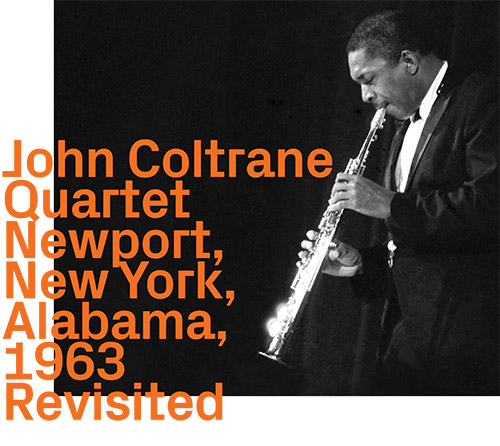


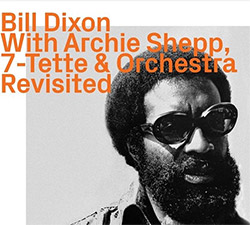



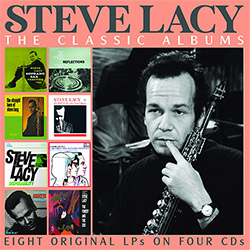


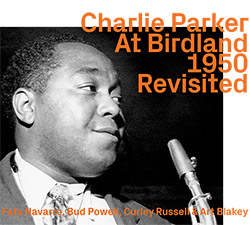
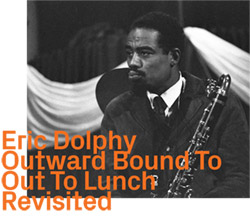
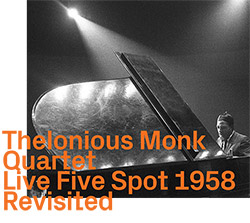

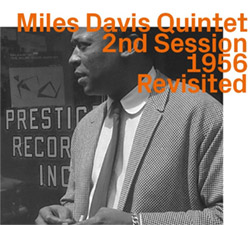
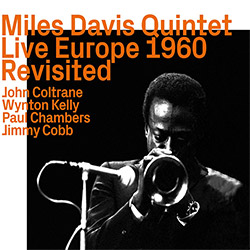
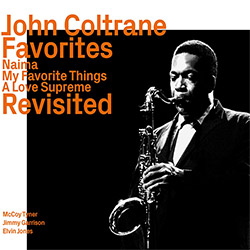



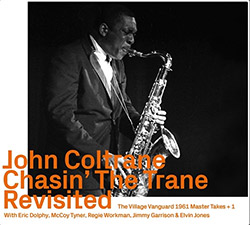
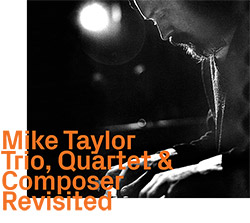



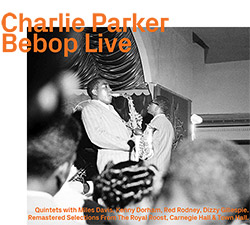











![Deupree, Jerome / Sylvie Courvoisier / Lester St. Louis / Joe Morris: Canyon [2 CDs]](https://www.teuthida.com/productImages/misc4/36404.jpg)


![Eternities: Rides Again [CASSETTE]](https://www.teuthida.com/productImages/misc4/36247.jpg)

![Lopez, Francisco: Untitled (2021-2022) [2 CDs]](https://www.teuthida.com/productImages/misc4/36438.jpg)




![Eventless Plot | Haarvol: The Subliminal Paths [CASSETTE + DOWNLOAD]](https://www.teuthida.com/productImages/misc4/36232.jpg)












![Eventless Plot | Francesco Covarino: Methexis [CASSETTE + DOWNLOAD]](https://www.teuthida.com/productImages/misc4/36231.jpg)



![Das B (Mazen Kerbaj / Mike Majkowski / Magda Mayas / Tony Buck): Love [VINYL]](https://www.teuthida.com/productImages/misc4/36329.jpg)



![Hemphill Stringtet, The: Plays the Music of Julius Hemphill [VINYL]](https://www.teuthida.com/productImages/misc4/36409.jpg)



![Halvorson, Mary Septet: Illusionary Sea [2 LPS]](https://www.teuthida.com/productImages/misc4/17952.jpg)






![Money : Money 2 [2 CDs]](https://www.teuthida.com/productImages/misc4/35894.jpg)




![Klinga, Erik: Elusive Shimmer [VINYL]](https://www.teuthida.com/productImages/misc4/36258.jpg)
![CHANGES TO blind (Phil Zampino): Volume 9 - I Wave on a Fine Vile Mist [CD + DOWNLOAD]](https://www.teuthida.com/productImages/misc4/36061.jpg)

![Wallmart / Rubbish: Asset Protection [split CD]](https://www.teuthida.com/productImages/misc4/35900.jpg)


![+Dog+: The Family Music Book Vol. 5 [2 CDs]](https://www.teuthida.com/productImages/misc4/35897.jpg)
![Kuvveti, Deli : Kuslar Soyledi [CASSETTE w/ DOWNLOAD]](https://www.teuthida.com/productImages/misc4/36107.jpg)

![Nakayama, Tetsuya: Edo Wan [CASSETTE w/ DOWNLOAD]](https://www.teuthida.com/productImages/misc4/36105.jpg)




![Yiyuan, Liang / Li Daiguo: Sonic Talismans [VINYL]](https://www.teuthida.com/productImages/misc4/35957.jpg)
![Brown, Dan / Dan Reynolds: Live At The Grange Hall [unauthorized][CASSETTE]](https://www.teuthida.com/productImages/misc4/36245.jpg)








![Palestine, Charlemagne / Seppe Gebruers: Beyondddddd The Notessssss [VINYL]](https://www.teuthida.com/productImages/misc4/36206.jpg)
![Palestine, Charlemagne / Seppe Gebruers: Beyondddddd The Notessssss [NEON GREEN VINYL]](https://www.teuthida.com/productImages/misc4/36207.jpg)

![Laubrock, Ingrid: Purposing The Air [2 CDs]](https://www.teuthida.com/productImages/misc4/35639.jpg)

![Yoko, Ono / The Great Learning Orchestra: Selected Recordings From Grapefruit [2 CDs]](https://www.teuthida.com/productImages/misc4/35841.jpg)









![Zorn, John / JACK Quartet: The Complete String Quartets [2 CDs]](https://www.teuthida.com/productImages/misc4/35609.jpg)

![Lonsdale, Eden: Dawnings [2 CDs]](https://www.teuthida.com/productImages/misc4/35480.jpg)



![Sorry For Laughing (G. Whitlow / M. Bates / Dave-Id / E. Ka-Spel): Rain Flowers [2 CDS]](https://www.teuthida.com/productImages/misc4/35985.jpg)

![Rolando, Tommaso / Andy Moor : Biscotti [CASSETTE w/ DOWNLOADS]](https://www.teuthida.com/productImages/misc4/36106.jpg)


![Electric Bird Noise / Derek Roddy: 8-10-22 [CD EP]](https://www.teuthida.com/productImages/misc4/35970.jpg)








![Elephant9 : Mythical River [VINYL]](https://www.teuthida.com/productImages/misc4/34624.jpg)



![Elephant9 with Terje Rypdal: Catching Fire [VINYL 2 LPs]](https://www.teuthida.com/productImages/misc4/35355.jpg)
![Deerlady (Obomsawin, Mali / Magdalena Abrego): Greatest Hits [VINYL]](https://www.teuthida.com/productImages/misc4/34876.jpg)







![Surplus 1980: Illusion of Consistency [CD]](https://www.teuthida.com/productImages/misc4/35069.jpg)
![Staiano, Moe: Away Towards the Light [VINYL + DOWNLOAD]](https://www.teuthida.com/productImages/misc4/35037.jpg)
![Coley, Byron: Dating Tips for Touring Bands [VINYL]](https://www.teuthida.com/productImages/misc4/17906.jpg)

![Lost Kisses: My Life is Sad & Funny [DVD]](https://www.teuthida.com/productImages/misc4/lostKissesDVD.jpg)